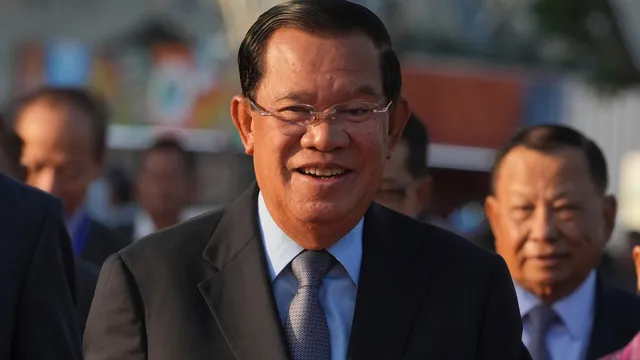
Thailand forces closure of Cambodia border, halting tourism
2025-06-26 10:29- Thailand has restricted land crossings to Cambodia due to escalating border tensions, impacting tourists and traders.
- Cambodia has accused Thailand of worsening the situation and has retaliated by blocking Thai imports and services.
- Both nations exhibit strained diplomatic relations as tensions heighten and the situation develops further.
Express your sentiment!
Insights
Cambodia has recently accused Thailand of escalating tensions at their border by imposing stringent restrictions that virtually block all land crossings. This move follows an armed confrontation on May 28, 2025, in which one Cambodian soldier was killed, leading to heightened security concerns. In response, the Thai military ordered border checkpoints to prevent the entry of most travelers, allowing only students, medical patients, and those with essential needs to cross. As these restrictions are fully implemented, thousands of tourists have been unable to enter Cambodia. Despite confirmation of a commitment to resolve the situation diplomatically from Cambodian officials, tensions have continued to rise in light of Thailand's actions. Simultaneously, as part of the broader conflict, Cambodia has started to boycott some Thai internet services and has blocked the import of various supplies, including electricity and fuel, in retaliation for Thailand's border policy. Historically, Cambodia has depended on Thailand for approximately 30% of its fuel imports, marking a significant shift as tensions escalate. The military action and subsequent reactions have not only affected the travel plans but also sparked protests in Thailand, where nationalists have criticized the Prime Minister, Paetongtarn Shinawatra, for her perceived leniency toward Cambodia and called for her resignation. With these developments, both nations seem entrenched in their positions, with discussions of the need for de-escalation appearing overshadowed by ongoing aggressive measures. The current diplomatic ties are strained, as governance issues plague each side, potentially leading to economic ramifications due to the drop in tourism and increased border hostilities. Moreover, ongoing discussions surrounding cybercrime further complicate this fragile relationship, as Thailand aims to target scams reportedly based out of Cambodia while being accused of diverting attention from domestic problems. The situation remains fluid and continues to evolve as both countries navigate their complex histories and ongoing tensions, underscoring the precarious nature of their bilateral relations amidst rising nationalist sentiments.
Contexts
The relations between Thailand and Cambodia have been historically complex, shaped by a mixture of territorial disputes, cultural ties, and political dynamics. Both countries share a long border, and their interactions have often revolved around issues such as the ownership of historical sites, particularly the UNESCO World Heritage-listed Angkor Wat complex, which is a testament to the Khmer Empire's influence over a thousand years ago. The rich history of the region has also fostered a sense of shared heritage, but this has been marred by conflicting national narratives and disputes that have often escalated into military confrontations. Such disputes have highlighted the challenges of reconciling historical claims with modern nationalistic sentiments that dominate both societies. In modern times, the relationship has oscillated between periods of cooperation and conflict. The border dispute over the Preah Vihear Temple, which reignited in the late 2000s, is a prime example of how historical grievances can resurface and lead to heightened tensions. Clashes between military forces at the border have occurred, resulting in fatalities and significant diplomatic strain. International responses have varied, with the International Court of Justice intervening to provide rulings on certain disputes, yet these have not always translated into peaceful resolutions at the ground level. Both countries have engaged in dialogue forums, recognizing the importance of diplomacy in mitigating conflicts and fostering regional stability. Economic and cultural ties have provided avenues for cooperation despite the historical tensions. Both nations are members of regional organizations such as ASEAN, which provide frameworks for dialogue and cooperative initiatives. Joint efforts in tourism, particularly leveraging the rich cultural heritage, have seen the emergence of various joint marketing strategies as both nations aim to attract international visitors. Moreover, trade relations have been bolstered, with both countries recognizing the mutual benefits of economic interdependence. Such cooperation stands as a counterbalance to conflict, illustrating the multifaceted nature of their bilateral relations. The future of Thailand-Cambodia relations will depend significantly on how both nations navigate their historical grievances while capitalizing on opportunities for economic collaboration and cultural exchange. Building trust and fostering mutual understanding through sustained dialogue will be crucial in overcoming past animosities. As both countries continue to focus on regional integration and development, this delicate balance will be vital in shaping the trajectory of their relations in the years to come.